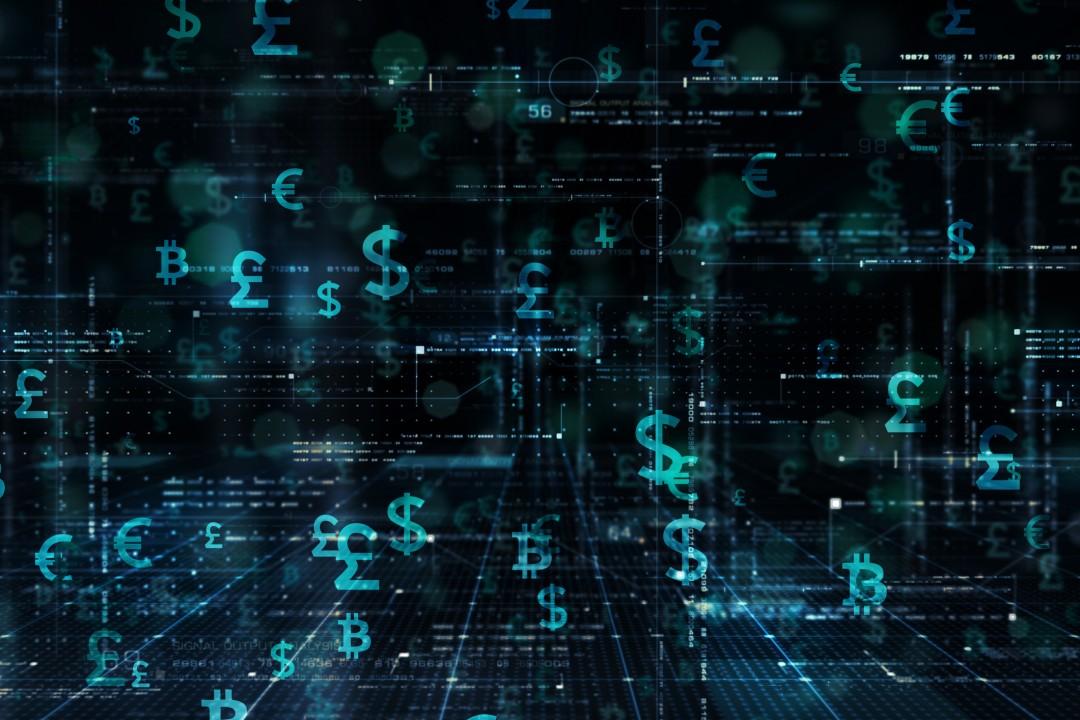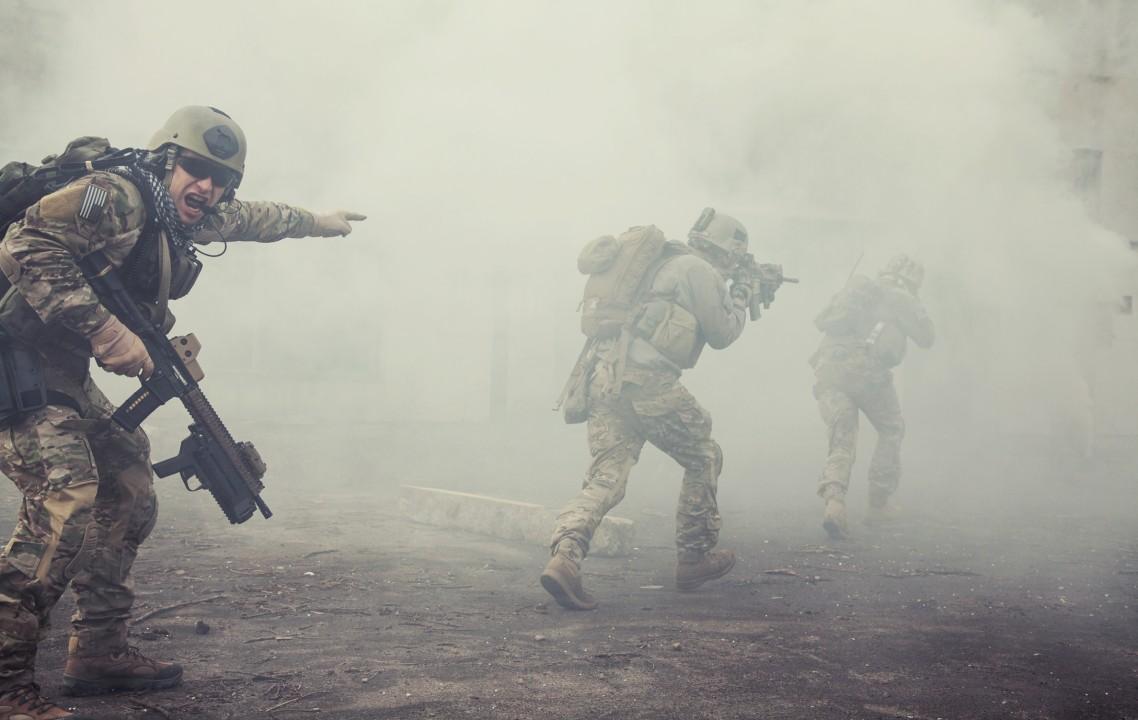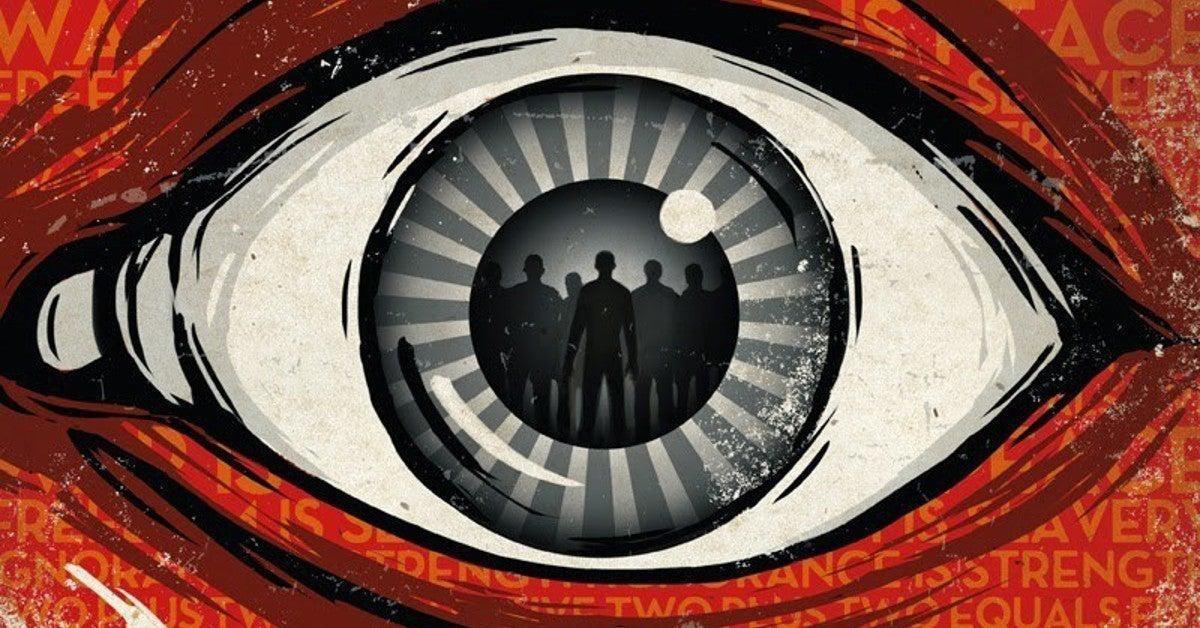“No money, no honey,” said my Grab (Uber copycat) driver, racing to the Singapore Fintech Festival. I’d asked why he was day-trading Chinese stocks from the large Huawei phone stuck to his dashboard. “You say beautiful woman in the US - in Singapore, Malaysia, we say honey, understand?” I nodded, wishing he’d keep his eyes on the road. “To get money you must risk. Don’t panic. Steady hand. You see Covid, you must see opportunity. You buy.” I quietly prayed he wouldn’t ask if I trade crypto. “You trade crypto?” he asked. “Yes! Yes!” he yelled, catching my eye in the rearview. “You got a honey?” I asked, pivoting fast. “Ah, no, no, I am AA. You know AA?” I shrugged. “Always available!” And we both laughed so hard.
Overall: “I know folks say - Oh, they’re just cleaning up this place because all these fancy leaders are coming into town,” said Gavin Newsom, licking the still-damp pressure-washed sidewalks of San Fran’s Tenderloin, the press snapping away. “And that’s true…because it’s true,” continued California’s governor, praying that Xi Jinping’s visit would position him as a serious leader should President Biden stumble a few more times between now and next November. “But it’s also true for months and months and months prior to APEC we’ve been having different conversations, and we’ve raised the bar of expectation between the city, the county, the state, and our federal partners,” said Gavin, America’s fever perhaps finally breaking, a California politician appearing to condemn, however gently, the senseless forfeit of a great city to tents, rampant crime, drug abuse, squalor. Portland’s mayor saw Newsom’s press conference and immediately called the Chinese embassy in DC, to beg for a state visit from Xi. He was put on hold. Seattle’s governor was ahead of him in the queue. Naturally Baltimore’s war-torn mayor had been first to call, but Chicago’s mayor had front run the order by piggybacking Citadel’s high-speed connection. “Could Mr. Jinping please come visit our South Side? Just a quick drive by? High-speed, anything, please?” the mayor pleaded. Yellen considered asking Xi to swing by Treasury to clean up our chronic deficit but felt it better to leave this historic challenge for her successor. New York City’s Mayor Adams, not one to defund the police unless forced to by budget cuts, was too busy explaining to his constituents that the migrant crisis would cost the city $11bln over the coming two years (next year’s $110bln NYC budget will contain a $7bln deficit). Governor Abbott was tempted to have Xi come clean up the mess on his border, but communists are obviously not welcome in Texas. Regardless, on this issue too, America’s fever was breaking. And with New York’s Governor Hochul seeking a more sensible approach to immigration, the creation of a sovereign border of some practical significance was finally on the horizon.
Week-in-Review: Mon: Fitch keeps Italy credit rating unch, former UK PM David Cameron returns as foreign secretary for Sunak’s administration, Tim Scott ends presidential campaign, Japan PPI 0.8% (0.9%e), India CPI 4.87% (4.80%e), Turkey CA bal 1.88b (1.40b e), China aggregate financing 1.85t (1.95t exp) / China M2 10.3% as exp, Argentina CPI 142.70% (145.20%e), US Monthly budget statement -$66.6b (-$65.0b e), NY Fed 1y infl exp 3.57% (3.67%p), S&P -0.1%; Tue: US CPI 3.2% (3.3%e) / Core 4% (4.1%e), US Dems back Speaker’s plan – increasing odds of averting gov’t shutdown on Friday, China reported planning 1T CNY of cheap funding for home purchases, Australia cons conf 79.9 (82p), India wholesale prices -0.52% (-0.38%e), UK emp chg 33k (-17k exp), Hungary 3Q GDP -0.4% (-0.5%e), Poland 3Q GDP 0.1% as exp, US NFIB 90.7 (90.5e), EU 3Q GDP 0.1% as exp, S&P +1.9%; Wed: US retail sales -0.1% MoM (-0.3%e) / control grp 0.2% as exp, soft but enough to add to the ‘goldilocks narrative,’ Biden calls Xi dictator after high level meeting / little substantial agreements announced / agree to restore military communications / hold joint dialogue around AI, Israel extends assault – ignoring int’l criticism of its raid on Al Shifa hospital, US house passes Speaker Johnson’s proposal with substantial democratic support, Fed’s Daly wants to go slow to avoid a ‘stop-start’ process that would erode Fed’s credibility, MSFT introduces its own chips for AI, China 1y MLF unch (2.5%) as exp, S. Korea unemp 2.5% (2.7%e), Japan GDP ann QoQ -2.1% (-0.4%) / deflator 5.1% (4.8%e), China IP 4.6% (4.5%e) / Ret sales 7.6% (7.0%e), Indonesia expts -10.43% (-16.48%e) / impts -2.42% (-7.20%e), France unemp 7.4% (7.3%e), UK CPI 4.6% (4.7%e) / Core 5.7% (5.8%e) / RPI 6.1% (6.3%e), EU IP -6.9% (-6.3%e), EU trade bal 9.2b (6.7b exp), S. Africa ret sales 0.9% (-0.4%e), US PPI 1.3% (1.9%e) / core 2.4% (2.7%e), US Empire mfg 9.1 (-3.0e), Russia 3Q GDP 5.5% (5.1%e), S&P +0.2%; Thu: deal to pause fighting in exchange for release of 50 hostages, Walmart warns of a sharper falloff of consumer in the second half of Oct, Alibaba cancels IPO spin off of cloud business due to shortage of US chips, EIA report shows unexpectedly large crude oil stockpiles, Fed’s Mester suggests the discussion is how long to remain restrictive rather than add’l hikes, Japan core machine orders -2.2% (-3.7%e), Australia emp chg 55k (24k exp) / unemp 3.7% as exp / participation rate 67.0% (66.8%e), Poland core CPI 8% as exp, Canada housing starting 274.7k (255.0k e), US Impt prices -2% (-1.8%e), US Initial claims 231k (220k e), US Philly Fed business outlook -5.9 (-8.0e) KC Fed mfg activity -2 (-9e), US IP MoM -0.6% (-0.4%e), US NAHB housing mkt index 34 (40e), S&P +0.1%; Fri: Biden signs stopgap spending bill to avert gov’t shut down through mid-Jan, Sam Altman ousted from OpenAI by the board, rumors of OPEC+ extending or increasing production cuts at next meeting (11/26), UK ret sales -2.7% (-1.6%e) / core -2.4% (-1.5%e), EU final CPI 2.9% as exp / Core 4.2% as exp, Brazil eco activity 0.32% (0.85%e), US Housing starts 1372k (1350k e) / Building permits 1487k (1450k e), S&P +0.1%.
Weekly Close: S&P 500 +2.2% and VIX -0.37 at +13.80. Nikkei +3.1%, Shanghai +0.5%, Euro Stoxx +2.8%, Bovespa +3.5%, MSCI World +2.9%, and MSCI Emerging +3.0%. USD rose +8.3% vs Ethereum, +2.9% vs Bitcoin, +0.5% vs Turkey, and flat vs Brazil. USD fell -3.5% vs Sweden, -3.2% vs Russia, -3.1% vs Chile, -2.4% vs Australia, -2.3% vs Mexico, -2.1% vs Euro, -2.0% vs South Africa, -1.9% vs Sterling, -1.3% vs Indonesia, -1.2% vs Yen, -1.0% vs China, -0.6% vs Canada, and -0.1% vs India. Gold +2.4%, Silver +7.0%, Oil -1.7%, Copper +3.9%, Iron Ore +3.8%, Corn +1.3%. 10yr Inflation Breakevens (EU -6bps at 2.11%, US -5bps at 2.29%, JP flat at 1.34%, and UK -12bps at 3.66%). 2yr Notes -18bps at 4.89% and 10yr Notes -22bps at 4.44%.
Year-to-Date Equities (high to low): Argentina +59.7% priced in US dollars (+219.2% priced in pesos), Poland +39.8% priced in dollars (+28.9% priced in zloty), Hungary +39.1% in dollars (+30.2% in forint), Greece +36.7% (+34.5%), NASDAQ +35% in dollars, Venezuela +28.9% (+169.5%), Italy +26.5% (+24.4%), Mexico +23.1% (+8.7%), Brazil +22.9% (+13.7%), Denmark +22.3% (+20.7%), Russia +21.7% (+48.8%), Spain +20.6% (+18.6%), Taiwan +17.6% (+21.7%), Ireland +17.6% (+15.7%), S&P 500 +17.6% in dollars, Euro Stoxx 50 +16.3% (+14.4%), Germany +16.2% (+14.3%), Czech Republic +15.2% (+15.2%), MSCI World +14.7% in dollars, France +13.6% (+11.7%), Japan +12.6% (+28.7%), Netherlands +11.9% (+10.1%), India +8.3% (+9%), Korea +7.6% (+10.4%), Austria +6.5% (+4.7%), Sweden +6.3% (+7.6%), Saudi Arabia +6% (+5.8%), Chile +4.9% (+9.7%), Switzerland +4.1% (+0.1%), Colombia +3.8% (-12.5%), Portugal +3.5% (+1.8%), UK +3.5% (+0.7%), Canada +2.6% (+4.1%), Indonesia +2.4% (+1.9%), Russell +2.1% in dollars, Norway -0.5% (+9.7%), Belgium -2.9% (-4.5%), Singapore -4.2% (-3.9%), Australia -4.5% (+0.2%), Philippines -4.9% (-5.4%), China -5.4% (-1.1%), South Africa -5.8% (+1.4%), UAE -6.2% (-6.2%), Turkey -7% (+42.6%), Malaysia -8% (-2.3%), Finland -8.1% (-9.6%), New Zealand -8.3% (-2.6%), Israel -9.6% (-3.9%), HK -11.7% (-11.8%), Thailand -16.3% (-15.2%).
Voldemort: “Whatever you do, don’t say crypto,” he said. A few of us were about to go on stage at the Singapore Fintech Festival. 60,000 attendees this year. “You’re kidding right?” I asked. “Last year, it was all about crypto, Web 3. And I haven’t heard a single person say crypto this year. All anyone talks about is AI and tokenization,” he explained. I turned to a commissioner from one of the top two US financial regulators who I was joining on stage and told her that my singular goal for our talk was to have her say crypto, even just once. And we were ushered on.
Voldemort II: “If you had subjected any other asset class to the barrage of negative forces that hit crypto over the past two years, it would have collapsed and flatlined, perhaps indefinitely,” I answered. The VC who moderated had asked how we should think about the performance of digital asset prices this year. “The most aggressive hiking cycle in modern history, the collapse of multiple crypto assets, leverage liquidations, frauds, the FTX debacle, the SEC lawsuit. If leveraged loans had been hit like that, or structured credit, venture, anything. It would be over.”
Voldemort III: “But now bitcoin is up 135% from the post-FTX lows,” I said. Crypto bottomed shortly after FTX collapsed in Nov last year. “ETH is up 77% from those lows.” Equities in the crypto space are up massively. Coinbase has nearly tripled from its SEC lawsuit low. “And this all happened in an environment where people at a fintech conference can barely bring themselves to say the word crypto,” I said. “It suggests something important is happening beneath the surface.” Then the commissioner smiled and said crypto, and I was so thrilled my brain shut off.
Tidal Flows: The Monetary Authority of Singapore (MAS) created Project Guardian [here], which is a regulatory sandbox built to allow innovators to use blockchain technology to improve the functioning of existing financial markets and develop new ones. Abu Dhabi is doing something similar within ADGM. Presenting proof-of-concepts at the Singapore conference [here] were Apollo, JP Morgan, Bank of New York, HSBC, Standard Chartered, and others. They presented the following transactions using blockchain, boasting of dramatic efficiency gains:
1. Alternative assets in rebalancing model portfolios
2. Asset-backed security token with underlying trade receivables
3. Cross-border FX payment
4. Digitally native issuance of structured notes
5. On-chain pricing
6. On-chain Real World Assets
7. Repurchasing Agreement (Repo) with natively issued digital bonds
8. Tokenized investment vehicles
Tidal Flows II: Tokenization is coming. The world’s largest financial incumbents are all now engaged, even if they must travel from the US to the UAE, Singapore, and other credible jurisdictions to find regulators that create frameworks in which to innovate. The US will eventually follow, in a race that it should have quite obviously dominated. But regardless, over the coming decade, as blockchain becomes foundational for financial transactions, settlement, and custody, useful natively digital assets such as bitcoin and ETH should experience tidal flows.
Anecdote: “A bitcoin ETF is going to get approved this year, perhaps early next,” said the Chairman. “The talking heads focus on how it’ll impact price, and I get that, but it’s a big deal for different reasons,” he continued. “It’ll be a major step toward bringing digital assets into the established regulatory regime. That process had started, then stalled.” I’d called for our regular exchange of thoughts, ideas. “The unquestionable conviction of SBF is a good thing, perhaps ironically, because it neatly closes that chapter as a financial fraud, not something specific to this new technology and these specific assets,” explained the Chairman. “A spot ETF approval should happen because it addresses the inefficiencies of the futures-based ETF. And once this happens, it paves the way for a leveling of the playing field for digital assets inside the regulatory regime, including custody,” he said. “That positions crypto as a technology applicable to all intangible assets, which is what it is.” Even in a world where almost everything manages to become politicized, it remains a mystery how the application of blockchain technology to assets and records has become so. Yet the world’s largest incumbent financial services firms are experimenting with the use of this technology to lower costs, improve efficiency, promote transparency, drive greater inclusion amongst the unbanked, and enhance financial stability. But US political and regulatory roadblocks are pushing much of this innovation offshore, putting our financial services sector at a competitive disadvantage for no apparently good reason. “Then comes the process of bringing well-designed stablecoin - safe and truly stable - into the regulatory regime, which done properly should lead to broader US dollar adoption throughout the emerging world.” As the US drags its feet, competitors and adversaries rush ahead. “It is time for this to get done. It starts with the ETF. And then for the first time, the free market will get to decide whether bitcoin and then ETH are worth a little or a lot and whether we will capture the gains in efficiency across the financial and other sectors that are ripe for the picking.”
Good luck out there,
Eric Peters
Chief Investment Officer
One River Asset Management
Disclaimer: All characters and events contained herein are entirely fictional. Even those things that appear based on real people and actual events are products of the author’s imagination. Any similarity is merely coincidental. The numbers are unreliable. The statistics too. Consequently, this message does not contain any investment recommendation, advice, or solicitation of any sort for any product, fund or service. The views expressed are strictly those of the author, even if often times they are not actually views held by the author, or directly contradict those views genuinely held by the author. And the views may certainly differ from those of any firm or person that the author may advise, converse with, or otherwise be associated with. Lastly, any inappropriate language, innuendo or dark humor contained herein is not specifically intended to offend the reader. And besides, nothing could possibly be more offensive than the real-life actions of the inept policy makers, corrupt elected leaders and short, paranoid dictators who infest our little planet. Yet we suffer their indignities every day. Oh yeah, past performance is not indicative of future returns.





